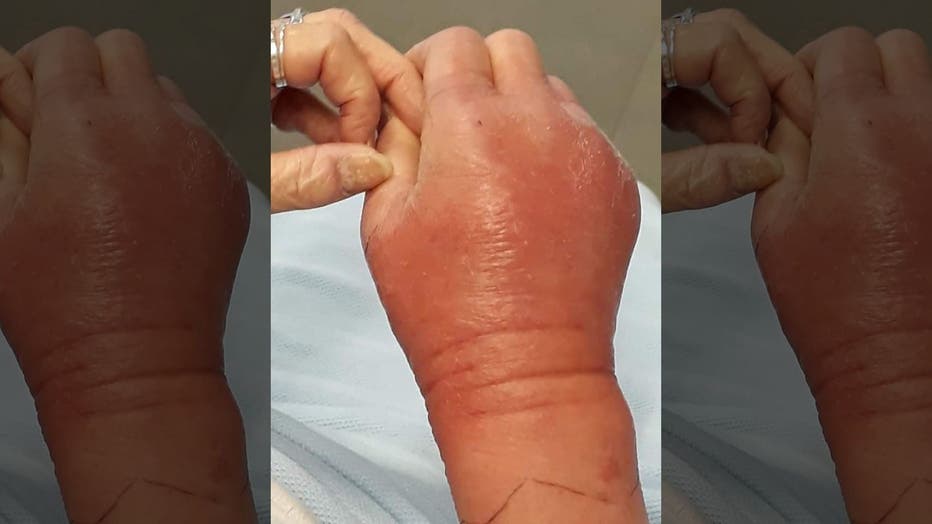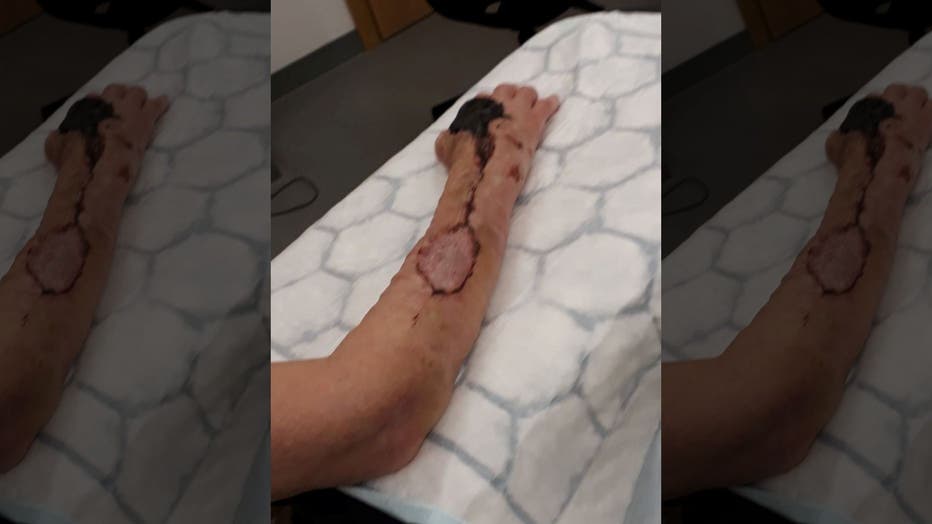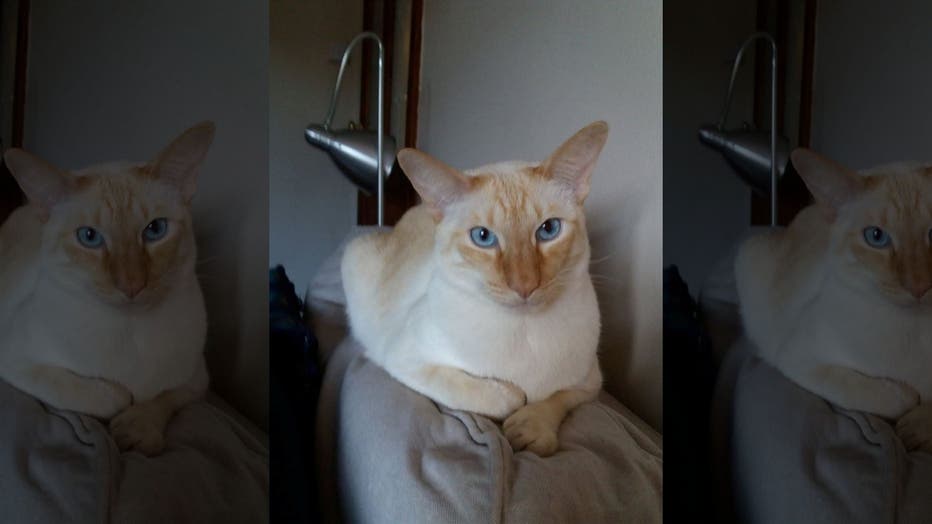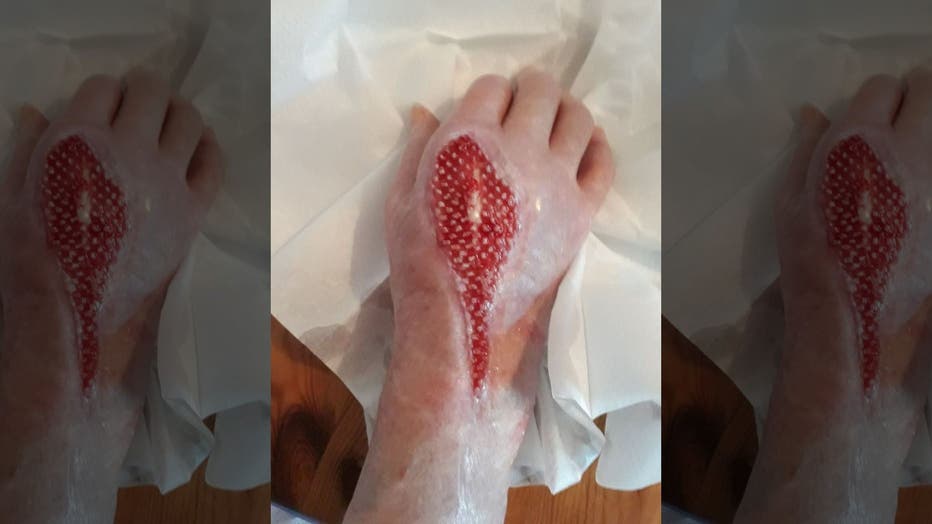Woman scratched by 'spiteful' cat develops flesh-eating bacteria, nearly dies
BRISTOL, England - A British grandmother of five is thankful to be alive after she developed a potentially deadly infection following a scratch from her “spiteful” and “cantankerous” feline, "Chan" the Siamese cat.
In April, Shirley Hair, 65, said she attempted to pick up Chan for a cuddle, but the cat “wasn’t having it” and scratched her on her right arm.

Shirley Hair in a medically induced coma in the hospital. (SWNS)
“The scratch was quite deep, but I didn’t think much of it until I started to get flu-like symptoms and totally lost my appetite,” she told South West News Service (SWNS), a British news agency. “A doctor came out to see me and prescribed antibiotics, but after a few days I was feeling worse than ever.”

Shirley Hair's arm after the scratch. (SWNS)
Soon after, Hair’s arm began to swell and turn bright red. She was subsequently rushed to Southmead Hospital in Bristol, at which point “I’d realized this was something very serious,” she said.
When she arrived, she was diagnosed with sepsis, septic shock, organ failure, pneumonia, and Necrotizing fasciitis, often referred to as “flesh-eating bacteria.” She underwent emergency surgery to remove the affected tissue and was placed in a medically-induced coma so her body could heal.

Shirley Hair's infected arm. (SWNS)
Necrotizing fasciitis is a rare bacterial infection that spreads quickly throughout the body and can lead to death, according to the Centers for Disease Control and Prevention (CDC). Accurate diagnosis, rapid antibiotic treatment and prompt surgery are vital to stopping the infection from spreading. The bacteria most commonly enter the body through a break in the skin such as cuts and scrapes, burns, insect bites, puncture wounds or surgical wounds.
In addition to a red swollen area of the skin, severe pain beyond the area of infected skin as well as fever may be signs of necrotizing fasciitis. The CDC advises getting to the doctor right away if any of these symptoms develop after an injury or surgery.

Shirley Hair's cat Chan. (SWNS)
Later symptoms of the infection may include ulcers, blisters or black spots on the skin, changes in the color of the skin, pus or oozing, dizziness, fatigue, diarrhea or nausea.
Necrotizing fasciitis can lead to shock, sepsis and organ failure, or life-long complications from severe scarring and loss of limb. Even with rapid treatment, up to one in three patients diagnosed dies from the infection, according to the CDC.

Shirley Hair's arm during the dressing change after her third skin graft. (SWNS)
By April 15, about five days after she was first placed in a medically-induced coma, Hair came to. But her battle wasn’t over. She required another surgery, during which her heart reportedly stopped. Later, she underwent multiple skin grafts to cover the area doctors were forced to remove.
Weeks later, she released from the hospital. Hair is lucky to be alive, she told SWNS.

Shirley Hair's healed arm. (SWNS)
“Some people must not come out at all,” she said.
Chan the cat, which allegedly became more aggressive as he aged, has since been re-homed. Hair said she “couldn’t face Chan anymore” after her near-death experience.

Shirley and her husband, Bob, at their home in Bristol. (SWNS)
"That cat had always been spiteful, he was very expensive though," she continued, noting she paid roughly $515 for the pedigree feline in 2016.
“I felt like I was going to die,” added Hair. “I couldn't believe this could all happen from a simple scratch.”
Fox News' Alexandria Hein contributed to this report.Get updates to this story on FoxNews.com.

